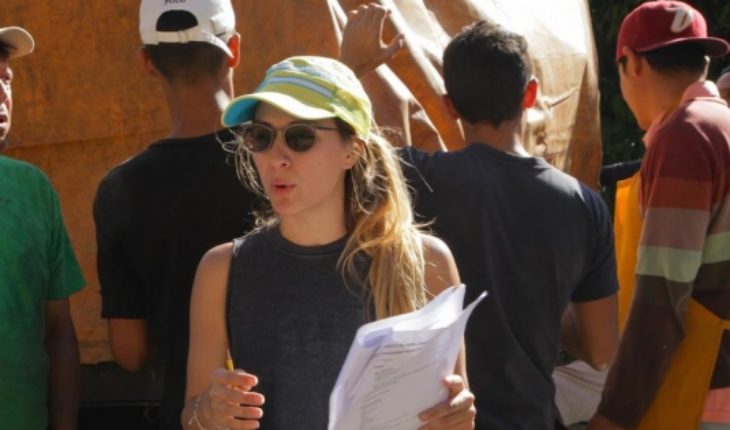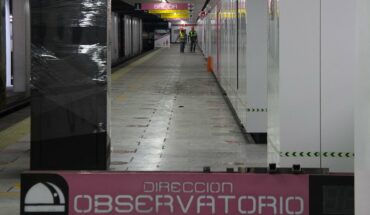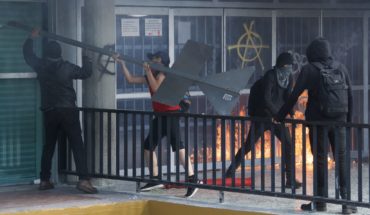ever rise more voices that show the hardness of Chavez in charge of mature regime. They are not only the journalists of the world press the unique highlight the reality that there exists but also the artists themselves that little by little, and outside their country, begin to express themselves without falling into polarization. Joanna Nelson is one of them.
At the beginning of 2018 began a comprehensive audiovisual project about the social and economic crisis in Venezuela. “Flour”, that comes from winning a prize to the best short film International Latin American Festival Iberoamericano de Huelva, was just the first step. The short film premiered in late November in the 34 th Edition of the Film Festival InterFilm, of Berlin, where he was selected in the international competition on human rights and won a special mention.
The political crisis in Venezuela affects undoubtedly also art and culture. Inflation and scarcity of resources prevent a correct development of cultural activities, and political persecution by the State makes to artists live in fear of portraying what is happening there. This obliges directors as Nelson to exile his work outside of Venezuela.
By way of example, the Director says that getting the actors was difficult because many live in fear of being persecuted by the regime, however, and despite the political rift that exists in the country, the film crew had both anti-Chavez as with Chavez – differentiating them from the maduristas – since everyone is convinced the crisis situation prevailing in the country.
His short film strives to be a true reflection of hunger due to the crisis of supply, of which the same production not saved, since during the filming, they had to rent food for use as decoration, and even paid with food the players , instead of money.
Despite the crisis and persecution, Nelson confronts fear and “Flour” presents to the world. In dialogue with Deutsche Welle, the Director spoke in depth about his personal experience and the harsh reality that plagues Venezuela why did with the film in 2012?
I come from doing Theatre since childhood. In my garden, when nina, rode theater productions for my friends and family. He wore my friends and told them what had to be done. Or is it directed them. Then I was doing courses and workshops in theater, I even wanted to study acting.
And between 2014 and 2016, he worked in theatre and film in Caracas.
More or less. It was an intermittent stay, because perhaps he spent three months in Venezuela and then I had to go. It was very difficult to work, in particular, at the beginning of the year, the situation in the country in general, and in particular due to protests that did fall work. Both audience and distribution were scarce during those days because either could not reach by the courts on the streets or because they were protesting. On two occasions I had to go from Venezuela because I fell the job due to the protests.
And how it is to produce then a play or a movie in Venezuela today?
Joanna Nelson, Venezuelan Director.
It is very difficult, but people do it. Venezuelans are very creative, although things that move us out of the hands, and we must look for a return. For example, a Court of electricity during a function, the public took their cell phones and lit the stage with screens. Also it has cut off water supply during filming. Then the bath cannot be used, and that much affects production. Not to mention catering, which is a much more complex and difficult matter because access to food is in itself complicated, as well as expensive. And so as many theaters have gone bankrupt for lack of resources and also because inflation will be whittled increasingly the purchasing power of the people.
Why don’t you want present the film in Venezuela?
This film is not for the Venezuelan itself, because we do not need is to remind us that we live day to day. It is addressed to the world, to know best what happens there. But that is not the only reason, but there also very frightened by what might happen if that movie is cast. At the beginning of last year launched the campaign here is not spoken badly of Chavez who calls all employees of public agencies and the rest of society to post a sign with that phrase. And at the end of that year, 2017, was the other, which is called law against racism [Ley Constitucional contra el Odio, por la Convivencia Pacífica y la Tolerancia, N. de la R.]which is very beautifully written, promoting tolerance and love, but which gives powers to the State censor and block means that, according to the Government, to promote hatred. And what bothers me more is that talk about the situation in Venezuela is criticizing the regime. Then, if projected a film showing an adverse situation in the country, theaters run the risk of being closed down. It is that for them – the Government – criticize is to speak ill of the regime.
Before filming flour in February 2018, you were with other comedy projects. What made you change the theme?
As you say, I was between December and January ending a short satirical film and starting another. But this 2018 started very hard in Venezuela, with various protests and looting. It happened to be on the street and people ask me, as money, not food, because they were hungry. I started to suffer morally and wondering “do I yes I can eat and they not?” It was not fair. What I started to do then was to eat the half to give it asked who and other things that you may need, as an elderly neighbor, didn’t even have SOAP for bathing. On the block of my street I saw people who, from one day to the other, had to stir the garbage to find what to eat every day. That is why I am now working on several projects that address the different themes of the Venezuelan crisis, but without looking down a political line, but show a reality that is happening and that affects us all. This goes beyond being pro or anti-Chávez.





